Synod Summary Report
Diocese of Youngstown Local Phase, 2021-2022
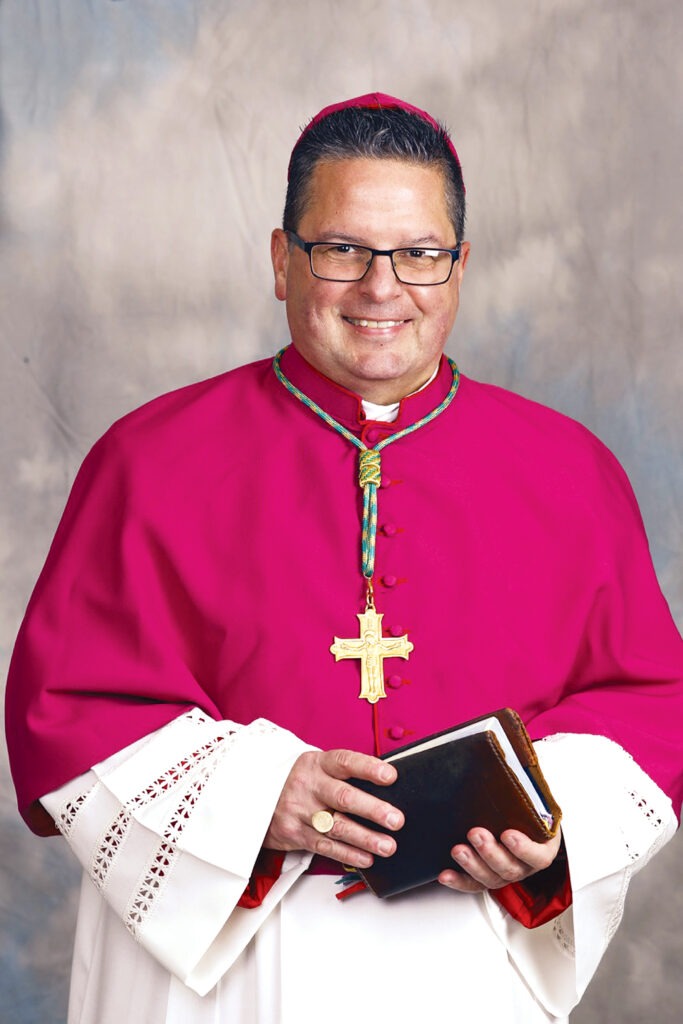
Introduction from Bishop Bonnar
In October 2021, the Diocese of Youngstown began the local phase of the worldwide Synod on Synodality, called for by Pope Francis. The word “Synod” comes from a Greek word which means, “to be on the journey together.” Synods are an ancient way of gathering the Church for prayer and discernment, and since the Second Vatican Council (1962-1965), synods have advised the Pope on important aspects of Church life and mission.
What is special about this Synod is that Pope Francis has invited the entire Church to be part of this process, in stages leading to the 2023 Synod of Bishops in Rome. All of us, by virtue of our Christian baptism, are on a path together. The theme for this Synod is synodality itself, with three key words: “Communion, Participation and Mission.”
Beginning in the Fall of 2021, our diocese invited reflection on the ten topics proposed by the worldwide Synod organizers. Parish councils and other parish groups have gathered, along with specialized gatherings of religious, lay ecclesial ministers, and more. Led by Msgr. John Zuraw, Diocesan Synod Coordinator, we gathered as deaneries for prayer and discussion. We also had an online tool for reflection and input.
Below, you will find our diocesan Synod report that summarizes these discussions. I am grateful to all who participated, for taking seriously the need to not only speak but to listen to the Holy Spirit, who leads us all into communion, participation, and mission. As you read this report, I hope you will see the ways that participants listened to the experiences and needs of one another, including those voices who continue to be missing from our prayer and discussion. With Pope Francis, we must continue to accompany those who are on the peripheries—we are a pilgrim Church that is also what Pope Francis calls a “field hospital.”
This report has been forwarded to the U.S. Conference of Catholic Bishops, and the Synod will now continue toward a global scale. But our work is not yet done. This continues to be a time for us all to dream together as people who come to church, so that we may go forth and be Church and walk together with Christ at the center.

Bishop of Youngstown
Table of Contents
Topic 1: Companions on the Journey | Topic 2: Listening | Topic 3: Speaking Out | Topic 4: Celebration | Topic 5: Sharing Responsibility for Our Common Mission | Topic 6: Dialogue in Church and Society | Topic 7: Ecumenism | Topic 8: Authority and Participation | Topic 9: Discerning and Deciding | Topic 10: Forming Ourselves in Synodality

Topic 1: Companions on the Journey
Synodal participants observed that a companion on the journey is not a clear-cut term with a well-defined definition. Companionship in reference to the Synodal process refers to living the mission of Jesus Christ. Journeying together must include the words of Jesus, where he stated, “I have come not to be served but to serve and give my life in ransom for many.”
For most Catholics, the parish is the primary experience of journeying together and some noted with pride the ways their parish invites all into mission, service, and community. Some participants articulated that their parishes and the Church meet them where they are, and the important role of their pastors in accompanying the community.
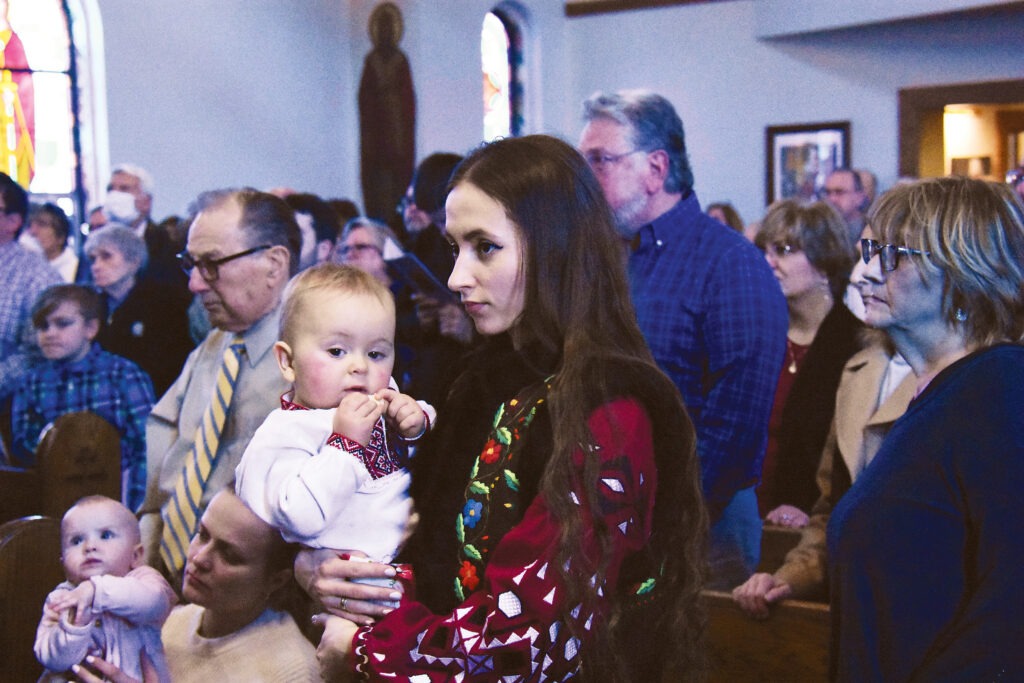
Companionship involves activity. A person does something for someone. Grounded in faith and signifying hope, it is feeding the hungry, giving shelter to the homeless, working for justice, reconciliation, and peace.
Walking together is not simply a matter of being with others, but rather is directed toward life in relationship with other persons. It fosters healing, reconciling, and redeeming relationships. Participants reflected on the need to heal fractures in the Church between those of different faith styles, and the desire of many to know that the Church is journeying with them and respects their style of faith. When someone walks with us, we are enabled to be and do more and live for a fuller future. Companionship on the journey gives us a richer and fuller dimension of Church, joined as a community of faith, engaged in service.
Companionship involves an empowering of the recipient. When Jesus washes the feet of his disciples, at first Peter is reluctant. But Jesus says that he can have no part with Jesus until he allows the Lord to wash his feet. Once Peter has received Jesus’ ministry, he is able to do for others as Jesus has done for him.
Companionship on the faith journey is a specific activity supported and designed by the Church which discloses the presence of God in our human lives and empowers us to live more fully in union with God and one another. Many cited concrete examples of conversion and community through the RCIA and renewal experiences.
To journey together is to be called into the life of the entire baptized community. Each of us must contribute to the building up of the whole community.
Competition among programs or groups within a parish does not give witness to authentic ministry. Programs and activities must work together to bond members into one community.
As the People of God, we need to acknowledge, in faith, ways both familiar and new, in which the Lord works among and through us. We are each given gifts and called to work together to build up the Body of Christ. We need to support those who are companions on the journey with us as well as those who receive our service. We need to be open to the promptings of the Holy Spirit who leads us in the path of truth and love.

Topic 2: Listening
Participants reflected on how the art of listening inspired by the Gospel must always be marked by a special sensitivity towards those who are most in distress. We must acknowledge the sinful structures and systems that oppress people and set about correcting them. We must cultivate a spirit of listening which demonstrates, in action, a sharing of generosity, hospitality, and service.
Some ask whether the Church’s promise to listen is authentic. Others have noticed the challenges the Church has in listening—including priests being stretched, insular parishes, and fear of the unknown. There are also the challenges of a wider culture of not listening.
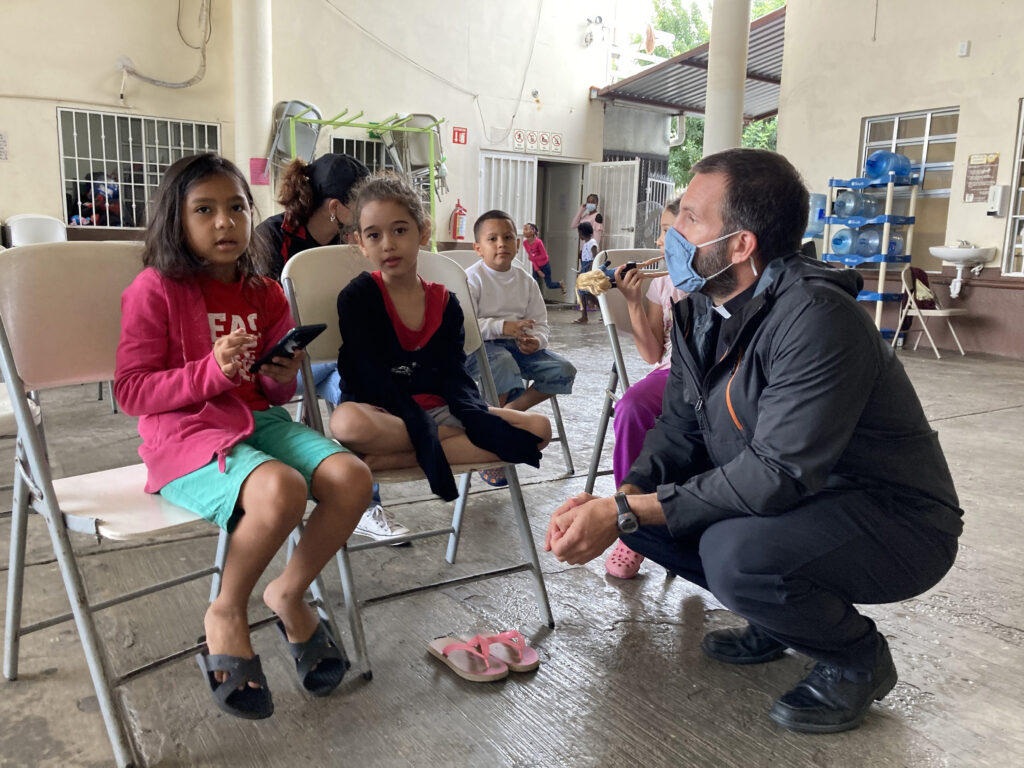
Authentic listening fosters authentic belonging in the Church, which has always meant more than accepting certain beliefs, ideas, and customs. Being members of the Church engages us in our totality as persons and therefore stirs up many feelings, some positive and some negative. Belonging to the Church touches the very core of our being and our need to discover our true identity: our dignity and worth.
For many people, membership stirs up feelings of gratitude and pride. We are proud and grateful for the Church’s support and encouragement of the arts in beholding a beautiful religious painting, hearing great music, or experiencing inspiring church architecture.
The experience of Church stirs up a sense of home. It is a familiar place where we feel at ease. Some, however, feel alienation from the Church, a sense of not belonging or being listened to, accompanied by anger and hurt. These often include women, LGBTQ+ persons, and those who feel that their efforts to promote social justice have not been adequately supported by the Church. Many young adults have never found a home in the Church—the Church must listen to their experiences.
Some are impatient with the seemingly slow pace of the Church. They ask how we as a Church cannot read the sign of the times. Some feel resentment when leaders address issues that are not distinctly religious. They feel that Church leaders have neither the mission nor the specific competence to deal with such matters. And some feel that the Church doesn’t listen enough to its own tradition and allow that tradition to inspire its public witness.
What, then, can we do? We can acknowledge both the positive and the negative. We can think and talk together and decide whether, and how, we will act. Beyond intellectual discussions, participants encouraged the Church to pay attention to the human heart, for it is there that we see Jesus—who felt compassion and righteous anger, patience and passion, hope and forgiveness, enthusiasm, and great love. The Body of Christ must embrace ways of listening and belonging that hold fast to the mystery of the Lord and our call to live the life of Christ.

Topic 3: Speaking Out
While the Church’s future is ultimately in God’s hands, this synodal process is reminding us how it is shaped, to a large extent, by the love and hope of its members. Since we believe that God has touched all aspects of human life, we expect the Church to embrace all the needs of humanity. In a very practical way, the Church needs to listen to the voices that speak out about the pains of injustice, aimlessness, and lack of purpose in the Church and in society. The Church needs to be responsive to the multitude of human needs, spiritual and material alike.
Synodal participants expressed a desire for the Church and pastors to listen better and allow space for those voices speaking out with perspectives on a variety of topics: including organization and participation in parish ministries, diocesan pastoral planning, and ministry with those on the peripheries of the Church. Particular attention must be given to those voices speaking out from the peripheries of both Church and society. Synodal participants also expressed a caution that, in our culture, people often voice their opinions without listening to the perspectives of others. Amid this culture, the Church is called to both respond to the needs of its members in a sensitive way, by listening intently, and also to move swiftly, and sometimes courageously, to lead the human spirit to bind those divided into one.
The Church’s listening must always be accompanied by authentic witness that is sometimes challenging to members of the Church and the wider culture.
The Church needs to see itself as a community that gives a clear and transparent witness to a life of justice, peace, equality, and holiness. When preaching and practice match, when we not only speak the message but embody the pain of others, the attractiveness and power of the Gospel takes hold of people’s lives.
As the Church, we need to speak out for compassion and be a compassionate community. We have more technology to extend and enhance life, yet we tend to forget that we do not live by the latest technological advances, but by simple mercy, by loving compassion. When the Church is experienced as compassionate, it becomes attractive.
The Church needs to be a truly welcoming community, a place that people can call home. To do this, members of the Church who already feel “at home” sometimes need to temper how they speak out to allow space for the voices of others who don’t feel welcome in the community. The Church becomes alive and is realized in the local community. People need to feel at home and be helped to recognize the Church as their home: that they belong here.

Topic 4: Celebration
Some synodal participants spoke of their dissatisfaction with liturgical experiences. Some said that, for too long, we have allowed our faith and religious practices to become uninspiring and drab. Some spoke of their disappointment that the liturgical reforms affected by the Second Vatican Council have been lost over time. These participants note that the Council stressed that the goal of liturgical reform is our full, conscious, and active participation in liturgical celebrations. There is a need for excellence on the part of all who minister at the liturgy, and the liturgy calls for a diversity of ministries. All who celebrate the liturgy must have in mind to participate together in the sacred act. Some participants expressed their displeasure with contemporary expressions of the liturgy, liturgical activity, and liturgical music (including those who affirm and those who do not affirm the post-Conciliar liturgy). While some criticized liturgical customs in their parish or in other parishes, others bemoaned the liturgical divisions in the Church.
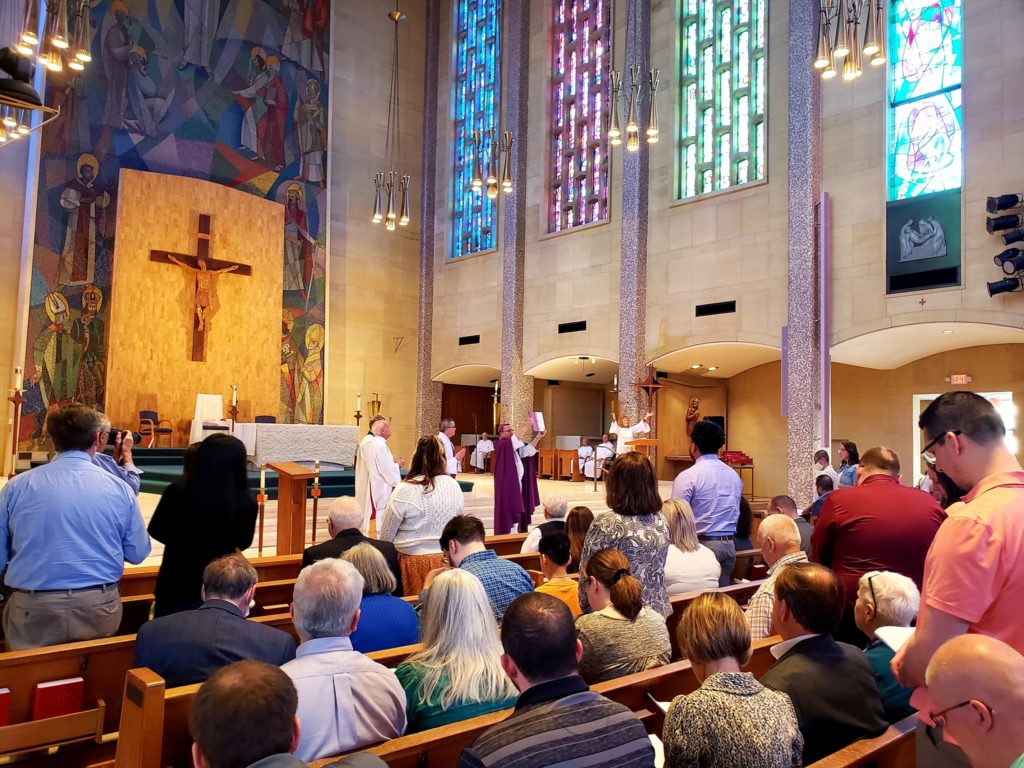
Many also reflected on their experiences of good liturgy as communion, strength, nourishment, and promise: liturgy as prayer that helps them recognize the presence of Christ, and that fosters a sense of community. Liturgy makes us a people whose hearts are attuned to justice and give witness to the truth. The liturgy is not an extra something nice to give us a good feeling. It is our life, our very spirit. Liturgy is the source of our identity. When we allow the liturgy to shape us, then we find what it is to put on Christ.
Synodal discussions reminded us that God does not need liturgy; people do. It is not an option, nor merely an obligation. We need to gather, listen, give praise and thanks, and share communion. Otherwise, we forget who we are and whose we are; without liturgy, we have neither the strength nor the joy to be Christ present in today’s world. During the pandemic, many were profoundly affected by the loss of the liturgy in sustaining them, and there is concern that many continue to still be absent from the liturgy.
We all recognize how important the homily is. We want good homilies. The homily is the assembly’s conversation with the day’s Scripture reading. Good homilies demand familiarity with the community’s needs and hopes. Homilies must be challenging and encouraging. They must seek out and listen to parishioner’s comments.
Concerning the Eucharist, participants encouraged a greater devotion to the Body and Blood of Christ present on the altar, along with a better understanding of belief in the Real Presence of Christ in the Eucharist and Eucharistic liturgy. Catholics have hardly begun to make the Eucharistic prayer the heart of the liturgy. It still appears to be a monologue by the priest. When we assemble at Mass, we must learn better how to be thanksgiving people.
There is a desire to be sent from the Eucharistic table as a people of mission. There should be nothing narrow, selfish, or blind in what we have become because of our celebration.
As we leave the doors after liturgy, we will continue to see sorrow and evil, yet we need to live out daily and discover why our liturgies must be that of praise. Good liturgical celebrations, with depth and beauty, are part of embracing the call to serve God and one another.

Topic 5: Sharing Responsibility
for Our Common Mission
For the most part, we can no longer effectively carry out the Church’s mission by trying to isolate ourselves from society, rather there needs to be a growing awareness that the Holy Spirit’s influence extends to the entire world. Synodal participants reflected on how Catholics live mission in ways that often extend beyond parish structures. For young people, especially, there needs to be humility about how missionary discipleship might be lived by generations distrustful of organizations. For all generations, the sexual abuse and financial scandals, among other factors, have diminished energy for Church life.
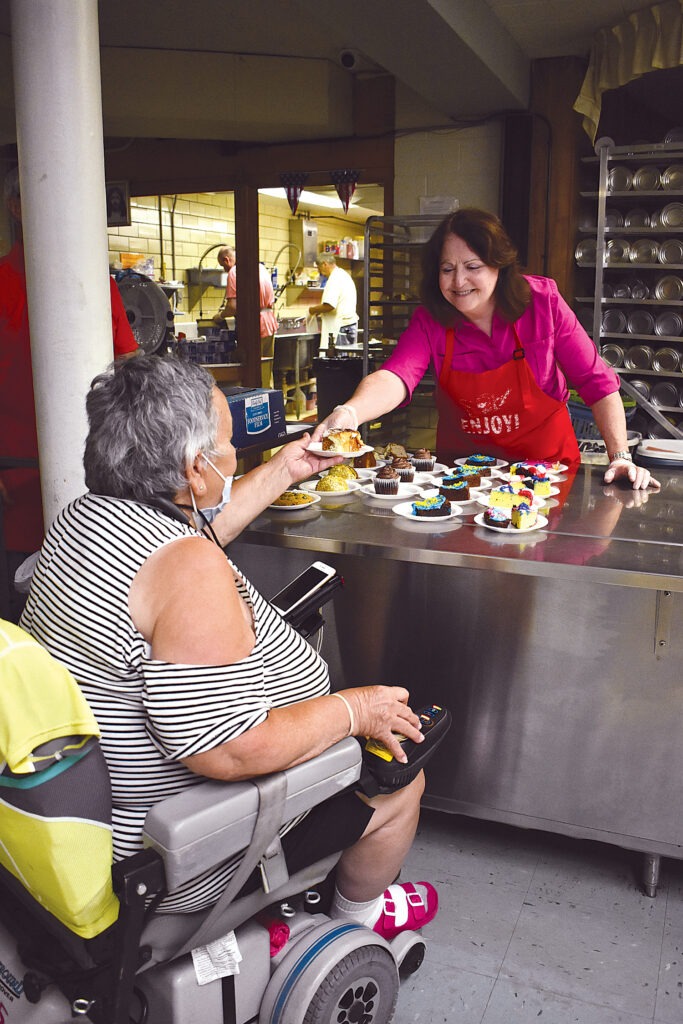
Still, many participants identified the potential for parishes to be better incubators for shared missionary responsibility, for example, through ministries and small faith groups. One of the unfortunate challenges for shared missionary responsibility is the great deal of polarization that exists within the Church. This has created a mood of suspicion. There is nothing wrong with different visions of Catholicism. Such differences appeared in the New Testament. But today the struggle is more destructive than constructive.
It was observed that the extremes are often the noisiest. Those in the middle, the majority, are often the most quiet. A greater effort must be made to engage those in the middle and, in the process, establish a new space for dialogue which will make it possible for the Church to reach those who are alienated or disillusioned and draw them into missionary discipleship.
To engage those in the middle, a broad range of leadership must recommit themselves to the basic truths of the Catholic faith and foster renewed catechesis that inspires meaningful missionary discipleship. We must be accountable to our Catholic tradition and to the Spirit-filled, living Church that brings to us the revelation of God in Jesus. Jesus, who is present in sacrament, word, and community, is central to all we do. We must focus constantly on him, not ourselves.
Some participants called for a realization that there is room for considerable diversity among us in the Church today, and that Pope Francis has observed that all, and not a select few, are called to live missionary discipleship in diverse ways. We should not, on the one hand, define orthodoxy too narrowly or, on the other, ignore or discard the traditions altogether. Where there is a breakdown of dialogue, trust, and tolerance, we must strive to build the unity of the one body of Christ. If we do not stand for such unity in our search for truth, the Church’s shared mission and ministries will suffer and we will be the stumbling blocks. The reign of God will appear to the extent that others can say, “see how these Christians love one another.”

Topic 6: Dialogue in Church and Society
Many synodal participants expressed a deep desire for an invitation to be part of meaningful dialogue, and for the Church to prioritize more dialogue in society. The Church should not see the world as a danger to flee from, but as a partner to dialogue with. While many noted the absence of dialogue opportunities, others noted dialogue that happens among community action groups, ecumenically, and even in libraries—and that the Church has an opportunity to participate in these dialogue opportunities.
During synodal conversations, it was emphasized that the Church’s primary mission is to proclaim Jesus Christ and the Gospel. Prior to the Second Vatican Council, the Church was rather slow to engage in dialogue with others. Some remain skeptical of the role of dialogue on the part of the Church and emphasize the Church’s preservation and sharing of the Deposit of Faith. But many have been inspired by the Council’s emphasis that dialogue is central to the Church’s mission. This does not take away from the truth which the Church teaches, but it opens the Church to the possibility of discovering elements of the truth which others experience.
The world has something to contribute to the Church. In our relationship to the world, which has been touched by Jesus’ saving act and the transformative power of the Holy Spirit, we are a teaching Church and also a learning Church. It was observed that the Church has much to learn from human experiences of diversity and sinful realities such as racism.
Many noted that, to be faithful to the Gospel, we cannot be satisfied with an uncritical acceptance of whatever the world offers. But neither should we be too quick to reject or distrust the world. Dialogue is a means by which people discover one another and discover the hopes and aspirations of others. The Church in the world offers wisdom, not technical solutions. The Church’s doctrine is a formulation as a result of careful reflection on the complexity of the human race. As partners in dialogue, the Church’s aim is to interpret these complex realities, evaluate them in light of the Gospel, and be a reliable guide for human behavior.
The task set before us means probing more deeply into the teaching about the dignity of the human person, the interdependence of the human family, the value of human work, the role of the Church in society. Every member of the Church has a responsibility to participate in dialogue by looking at both the Church and the world with a new heart.
This is a time of great challenge and great potential. The dialogue between the Church and the world, at times, becomes distorted, because we view them through negative realities. But we know that Jesus, who is present among us, is still Lord of the universe. This assurance gives us hope that overcomes discouragement and calls us to greater things, even in the midst of adversity.

Topic 7: Ecumenism
Many participants observed that they were not aware that their parish or that the Catholic Church were engaged in any form of ecumenism. Some noted that they knew of relationships between Christian churches in their area, but Catholic participation was minimal. Some described a rich history of ecumenical friendships and initiatives and their participation in it, while others noted that these sorts of initiatives are not as prominent as they once were.
For many of our synodal conversations, ecumenism was understood within the context of evangelization, a responsibility shared among Christians, but understood in different ways. Some placed a priority on evangelization over ecumenism, while others observed ecumenism as essential for evangelization. Evangelization is surely directed to the unchurched, but it also addresses persons who have some religious affiliation but no longer practice it—a common reality, both for the Catholic Church and our ecumenical partners. Evangelization is also directed to those who are active in the faith. We all need evangelization; we all need opportunities for growth. The desire was expressed for more opportunities to share, learn, and serve with other Christians as part of this growth.
Evangelization is not an office, program, or a technique. It is a way of life. It is a constant state of spiritual growth and renewal. It means proclaiming the Gospel and ministering in such a way that we help people take a stand for what the Kingdom of God represents, in stark contrast to the cultural values of our time. Some noted the common witness ecumenism offers for defending the dignity of every human person; standing with the unborn and mothers in need; protecting the rights of the poor and the oppressed. In doing so, Christians must not become identified with any political system or ideology. Rather, Christians must remain independent and have the freedom to evaluate and to criticize the programs of any secular society.
Sometimes, ecumenical partners disagree on how to live the Gospel on fundamental issues, and this can cause conflict among us. Many expressed the priority of not watering down Catholic approaches to difficult issues or fundamental beliefs. Yet, although in an imperfect way, it is together that we follow the Way of the Gospel of Jesus Christ, which is the way of truth.
Perhaps the greatest contribution which we have in common with other Christians is to convince people that there is a connection between Jesus and what is happening in the world. One of the greatest needs today is to convince people that there is a moral dimension to so many of the issues we face as a society.
In his day, Jesus asked the people, “Who do you say that I am?” That same question is asked of us. It is our task to help people see the Lord with eyes of faith, so that, like Peter, we can recognize Jesus and say, “You are the Messiah of God.” Our personal interests can never become obstacles to our witness to the Lord Jesus.

Topic 8: Authority and Participation
Throughout our conversations, we all recognize that, in the Church, there is disagreement with some aspects of authority. This includes how Church governance decisions are made, and also the important topic of the Church’s moral teaching. Some disagree with what the Church says, while others disagree with how the Church says things.
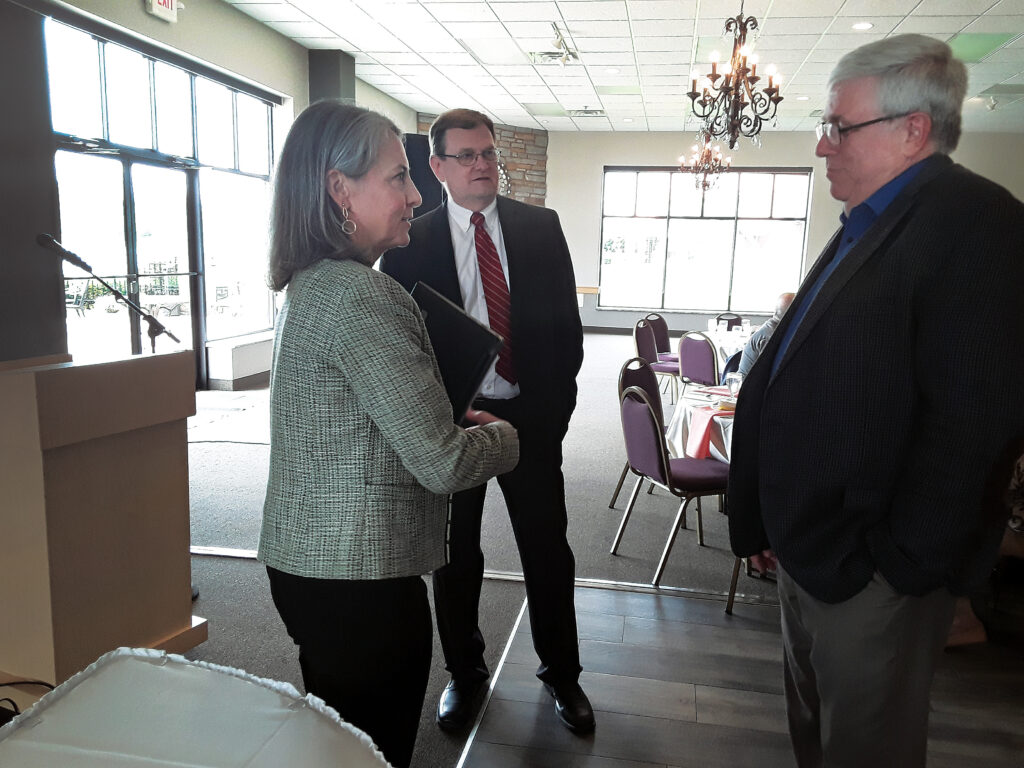
With regards to Church governance, many expressed a desire for their parishes and pastors to use a more consultative process, including pastoral councils and other ways of fostering true consultation between the pastor and the faithful. Likewise, the exercise of hierarchy is often seen as top-down. Often, lay Catholics have little to say in the Church’s decision-making process. There is a desire that this Synod will foster true listening and consultation.
Some observe that the problem is not so much structural, as it is pastoral. The concern is the way authority is exercised. Consultation and dialogue depend on a pastoral willingness to confront difficult issues, which is a must in order to not lose credibility.
With regards to disagreement with the Church’s moral teaching: disagreement is not necessarily bad in itself. There cannot be growth without some sort of questioning and conflict. Disagreement becomes a problem when it goes beyond raising questions and attacks the fundamental identity of a family, society, and church. Disagreement becomes destructive when it fails to respect those with whom one disagrees.
Participants reflected on how, as the Church, we live by universal moral principles that guide the formation of the conscience for each believer. In the application of these principles, the Church does recognize that there is room, at times, for honest differences of opinions. This is true, for example, in determining matters of public policy in the social and political arena. But some desire greater clarity and consistency from the Church on the application of moral principles, noting that, in certain moral matters, there is no distinction between the principle and its application (e.g. regarding human life in its origins and protection).
Today, there is much controversy about dissent from authoritative teaching. Synodal participants seem to agree on certain items. We acknowledge that our Catholic tradition has affirmed that the magisterium is a gift of the Spirit to the Church. We also agree that the ministry of teaching can be exercised in different ways. It is essential that those who teach in the name of the Church present clearly, and without ambiguity, what the Church teaches. And yet, we are very aware that people sometimes question the Church’s teaching. Some even consider it wrong. Synodal participants noted that, at these times, the Church must reach out with integrity, but also with compassion and understanding, and do a better job explaining the human and Christian values that underlie the Church’s teaching.
Finally, it was observed that many young adult Catholics are constructing their own religious identity. Many are moving from seeing the Church of obligation and obedience, to seeing a church that is more willing to address issues and concerns relevant to them. They want a Church that is more willing to listen seriously to them, instead of issuing authoritative pronouncements or asserting that issues are closed and cannot be discussed.

Topic 9: Discerning and Deciding
One image that emerges from our conversations was Jesus as he began his ministry with a call to conversion. A conversion, not of feeling, but rather a change in life. We cling to where we are, resisting change, and resisting the decisions we have to make. In discerning and deciding, we must be faithful to Jesus’ mission that the Church is called to change in ways that will allow it to care for people, especially those most in need.
To be faithful, participants articulated certain basic themes in discerning and deciding. Behind them all is a more fruitful experience of prayer in discernment as a Church, from pastoral council and finance council meetings to each individual’s day-to-day discernment.
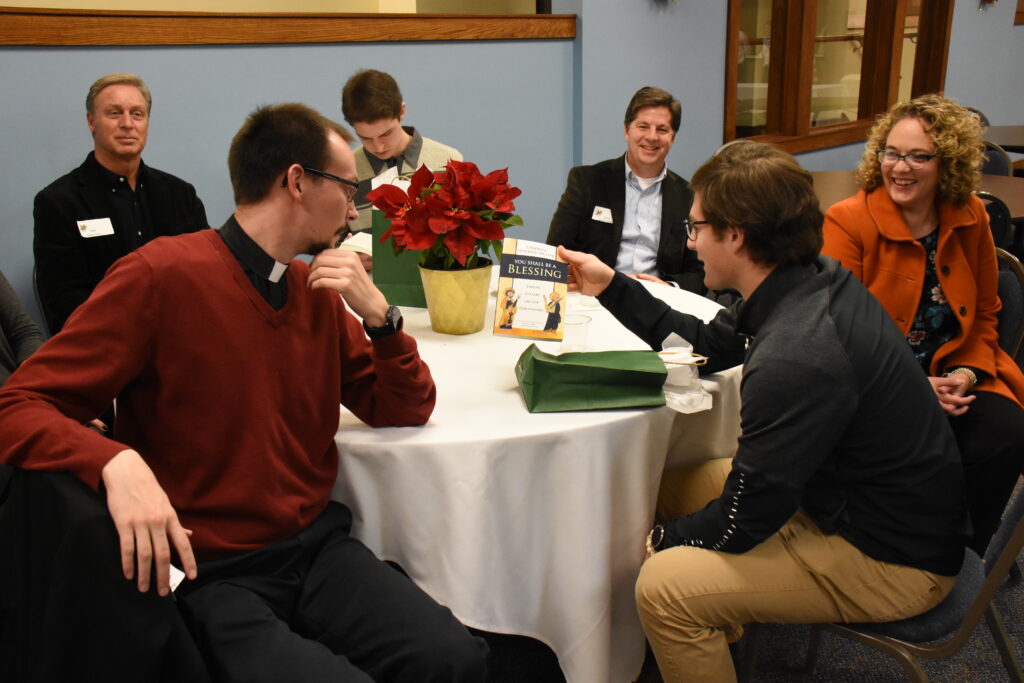
Especially articulated was that the Church today must be an inclusive community. Readiness to incorporate all people into the community of faith is a measure of our fidelity to continuing Jesus’ mission. Inclusiveness involves more than accepting outsiders into our community. It pertains to how we deal with one another. Resolving issues of inclusion and exclusion depends on how we understand equality and hierarchy in the Church. The challenge facing the Church is: how do we affirm and support new ways of relating to one another in order to reflect both our fundamental equality and our hierarchical structure? It is not a question of choosing one or another, but accepting both. This requires a change in attitude and relationship.
Stewardship was also articulated as a gift for discernment in the Church. Stewardship is understood as the appropriate care of the material goods of the world created by God. Rich or poor we are all prone to be driven by the desire for more money and material goods, to such an extent that it comes to rule one’s life. Membership in a faith community calls us to re-examine our values in accord with the Gospel.
Discernment depends on surrendering mastery and trusting the Spirit in setting goals. Many people today set and work for goals that will bear fruit quickly. By trying to control and manipulate, we may actually deceive ourselves into imagining that we are the ultimate masters of our lives and that this is all there is to life. The Church gives powerful witness to the realm of the Spirit. We must witness to the ultimate foundation in Christ, who is the same yesterday, today, and forever.
Finally, there is a profound need for discernment based on love, which reconciles human relationships. It is our responsibility to bring about that love in all decisions that need to be made. As the Church, we are holy because God and the Spirit dwell within us and guide us. We who belong to the Church are also sinful People of God. Our failures to be an inclusive community, to work for justice and charity, to promote loving and reconciled communities are highlighted in our need for repentance and conversion of heart when decisions and directions turn to self, instead of to others.

Topic 10: Forming Ourselves
in Synodality
Emerging again from our synodal conversations was Jesus’s great commandment: love one another as I have loved you. As Christians, we are called to live this by serving one another.
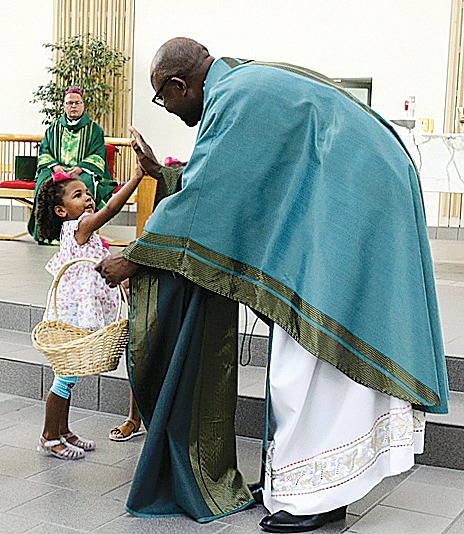
In his abundant kindness, the Lord has blessed His Church with many gifts which come alive in people. We love one another by recognizing, with faith and gratitude, the gifts in one another. These gifts enable the People of God, in ways both familiar and new, to carry out the mission of the Church and allow the Lord to work among us and through us.
Synodal participants in the Diocese of Youngstown reflected on how, from the very beginning, the Church of Youngstown has benefited from the generous service of many women and men. In times past, people may not have spoken of “journeying” but the reality was there in how we served together in particular ways. Now, each one of us must contribute to building up the whole community. Competition among groups does not give witness to authentic Christianity. Journeying must contribute to the bonding of members into one community. As a Church, we need to continue searching for the most appropriate ways in which God can be revealed and his people served. We must learn from one another. Therefore, certain directions for the future should include:
1. A need to be astute in identifying and assessing the contemporary needs of our society and responding to them.
This is a call to exercise our God-given creativity in finding new ways to disclose God and to serve his people in new ways, participating in the emergence of the reign of God in our midst.
2. Vigorously fostering and supporting the truth that all members of the Church have dignity
It is a community in which all members, by virtue of their incorporation into Christ through baptism and confirmation, witness to his saving deeds before the entire world and work for the emergence of the kingdom which Christ proclaimed. It is a community that honors truth more than idle speculation and bias, a community in which respect for persons rules out pettiness, unfairness and mean-spiritedness; promoting instead dialogue, reconciliation and unity. It is a community in which Jesus’ love and mercy, his justice, compassion and healing power, is lived each day.
Want more information on the synod or the synodal process?
